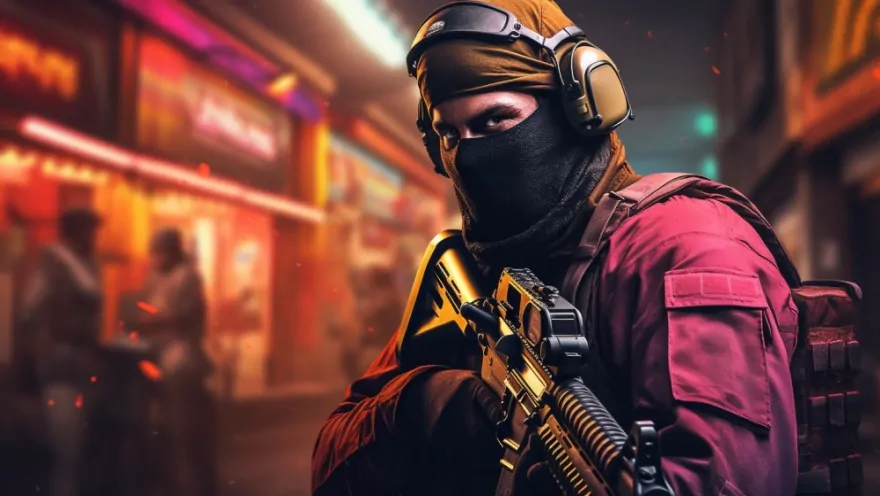On stage, e-sports look easy, but moving a team from point A to point B is a strategy game in and of itself. It’s hard to keep to tight schedules and fragile tools, and every delay cuts into practice time. The best teams plan their travel and ground logistics like they would a playbook. They have clear roles, dependable partners, and no surprises.
Solid transport underpins everything. A late pickup means a missed scrim. A rough ride means a damaged PC. Confusing airport handoffs equal stress before a must-win match. This is why teams lean on trusted providers who understand time windows, gear handling, and the pressure of live events. Providers offering door-to-door transfers, multi-stop itineraries, and help with special requests keep game day calm and focused. For readers looking into dependable options, details on services similar to airport transfers, hourly hire, and point to point rides can be found at https://www.divinetrans.com/services where the scope of support is described in one place.

Tournament Life On The Road
A typical week on tour stacks commitments like a vertical slice. Press day, practice blocks, warm-up scrims, and the big stage are all there. There are hotel check-ins, venue moves, team meals, staff meetings, and last-minute runs to get cables or adapters in between. Transit slots are narrow. Drivers need the address of the side entrance that accepts production badges. Vans must have space for flight cases, camera bags, and a few extra chairs when analysts join.
Good transport feels invisible because it anticipates these details. Vehicles arrive early, wait without fuss, and route around traffic patterns near arenas. Drivers communicate clearly, understand venue loading zones, and keep an eye on small things that matter to players: a stable temperature, a quiet cabin, and enough room to stretch before a long series.
Why Reliable Transport Matters
Teams win edges by removing friction. Reliable, well planned travel does exactly that. Look at the risks when logistics wobble: missed scrim blocks mean less map prep; late arrivals reduce time for device checks; rushed players make mental errors. Consistency behind the scenes keeps players in their routine.
What makes a strong partner for esports and gaming events:
- Punctuality as a habit
Early arrival, buffer time, and proactive updates cut stress. A great provider treats a 10 minute lead like a rule, not a bonus. - Equipment aware vehicles
Vans with flat cargo space, tie-downs, and careful loading prevent knocks to PCs and monitors. Crews that routinely handle delicate gear move faster and safer. - Flexible routing
Drivers who know arena perimeters, hotel docks, and city choke points shorten every ride. When weather or traffic changes, alternate routes just happen. - Clear communication
Itineraries in writing, driver names and contacts shared ahead of time, and quick replies when schedules shift keep staff aligned. - Discreet service
Players need calm. Professional tone, low profile arrivals, and respectful handling of fans and media create breathing room.
What Great Service Looks Like
There is a big difference between a ride and an all-day solution. Teams often need a mix of airport pickups, hourly standby, cross-town hops, and late-night returns after stage resets. A strong service menu covers that range without forcing compromises.
Hallmarks of service that fits esports:
- Meet and greet at arrivals so no one wanders through a crowded terminal hunting for a sign.
- Hour based bookings for practice day shuttles between hotel, boot camp facility, and venue.
- Point to point transfers with pinned pickup spots, perfect for media or sponsor shoots across town.
- Multi vehicle coordination when talent, analysts, and ops staff travel on different clocks.
- 24 hour dispatcher support during tournament weeks when schedules live and breathe.
- Thoughtful extras like water in vehicles, quiet rides before high pressure matches, and quick detours for cables or energy snacks.
When service stacks up this way, staff can focus on the next match rather than the next ride. Operations leads get back hours each day, and coaches keep routines stable. The players simply show up ready.
A Simple Playbook For Teams
Even the best providers work better with a tight brief. Teams that treat transport like part of their practice routine get smoother days and fewer surprises. Here is a short playbook that works across events and cities.
Before the trip
- Share headcounts and luggage type, including flight cases and odd sizes.
- Send every address with a preferred entrance and a fallback spot.
- Add a WhatsApp or Slack bridge for the team lead, coach, and driver dispatcher.
- Build buffer time around media, rehearsal, and main stage slots.
- Attach a simple list of player preferences to reduce back-and-forth later.
During the event
- Confirm morning pickups the night before and again one hour before call time.
- Keep one vehicle on light standby during scrims for last-minute errands.
- Log what works well each day and note friction points to adjust routes.
- Combine solo trips when possible to keep timing flexible for the core roster.
- After finals, plan for an extra vehicle to carry trophies, merch, or media kits.
After the event
- Debrief in writing. What went right, what caused delays, and which routes were best.
- Save driver contacts that nailed the brief for next time in the same city.
- Update the team’s travel wiki so the next road week starts at level two, not level one.
Quiet Confidence On Game Day
Transport done right becomes a competitive advantage. The road between hotel and venue is a moment to reset, breathe, and visualize the first duel. No frantic calls, no last-minute street parking, no gear jammed under seats. Just a calm ride, a clean arrival, and a clear head.
Providers that understand this rhythm offer more than wheels. They deliver time, focus, and predictability. Those services stack up into better practice, steadier moods, and sharper starts. For organizers, coaches, and team managers, hunting down that reliability is winnable ground. It shows up on the scoreboard in subtle ways, round after round.
Esports will keep moving fast. Rosters will bounce from boot camps to majors to showcases, all on tight calendars. The teams that treat logistics as part of their craft will feel the difference first. They will step out of the van with their aim warmed, their minds clear, and their routine unbroken. That quiet confidence is often the first round won—long before the pistol buy.
